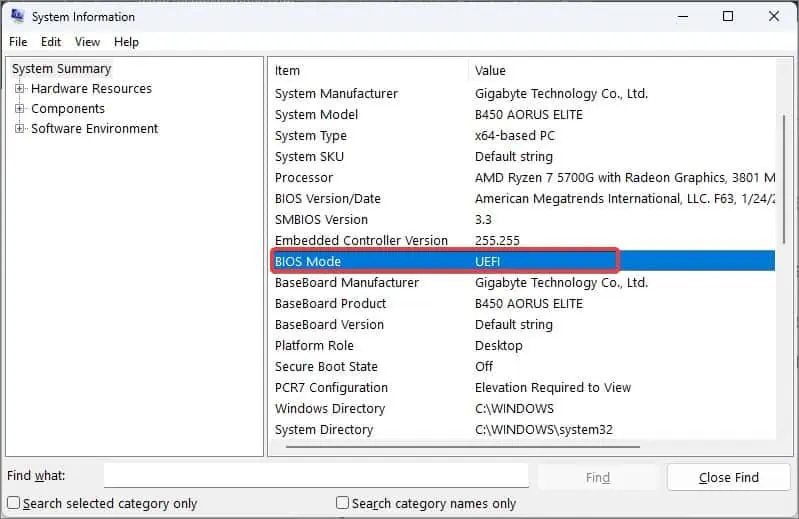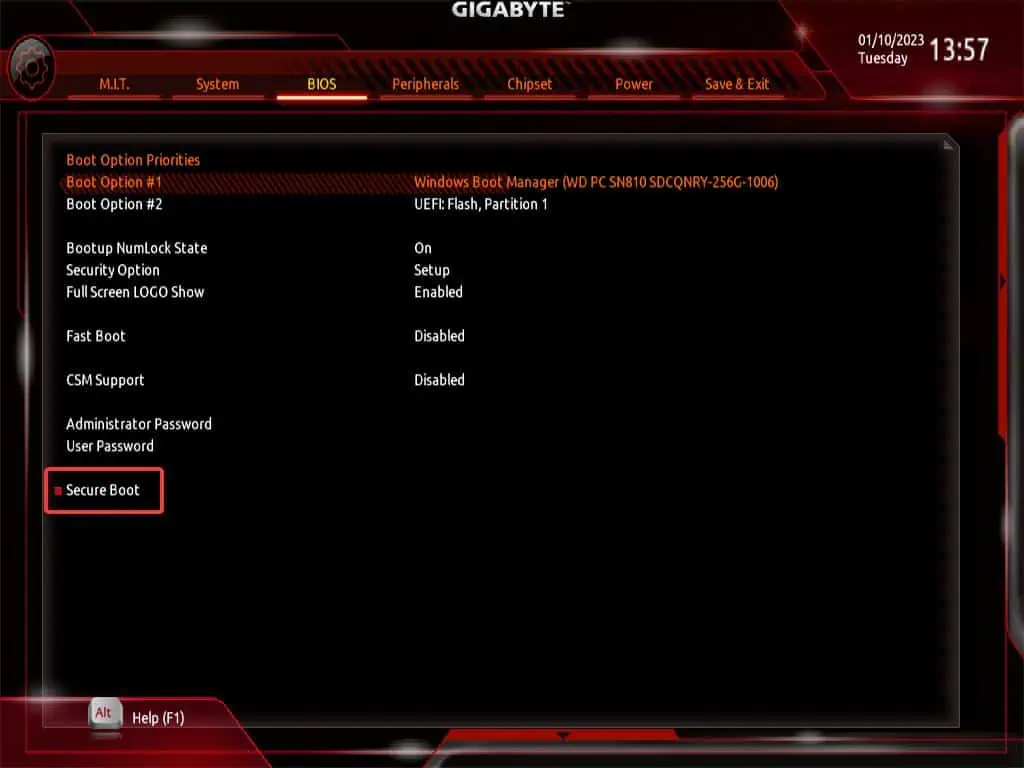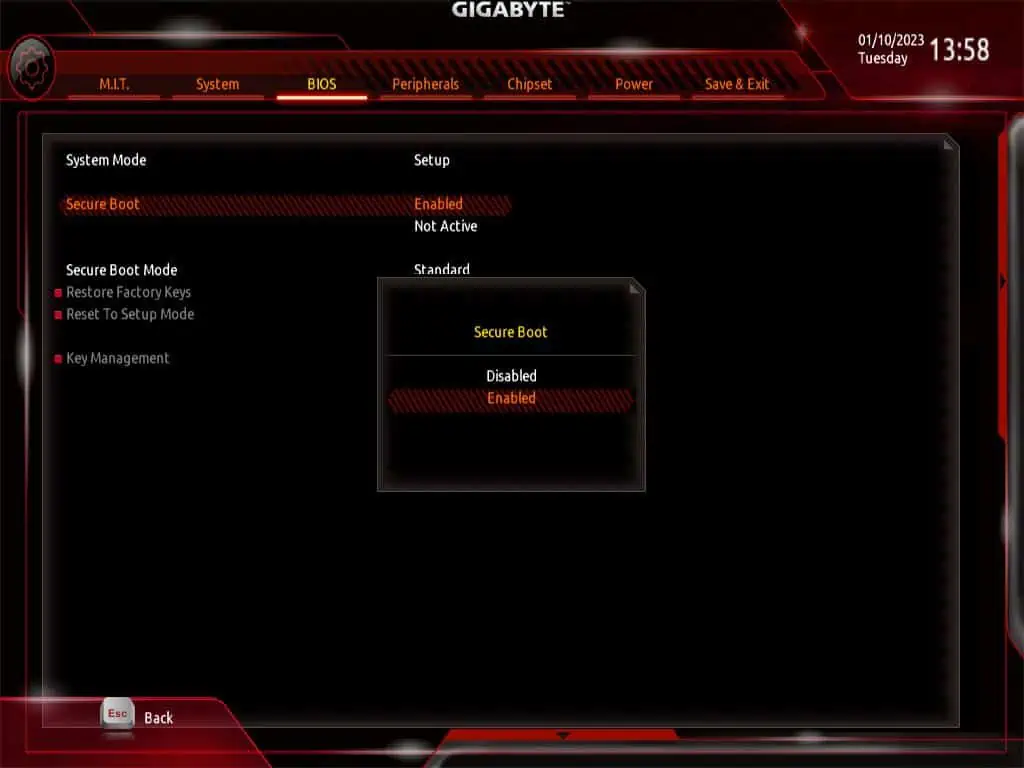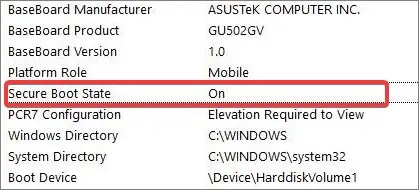Secure Boot is a security standard that oversees that the computer does not boot using unreliable software. This can restrict and prevent different attacks on the system from malicious software and rootkits.
If you want to make anupgrade to Windows 11, you must first ensure that thedevice is Secure boot capable, although you do not need to enable it. But enabling it will add an extra layer of security to your device.
On Gigabyte devices that use UEFI firmware, you may enable the secure boot easily from the BIOS. However, you may need to disable theCompatibility Support Mode (CSM)as the Secure Boot cannot operate along with the Legacy BIOS.
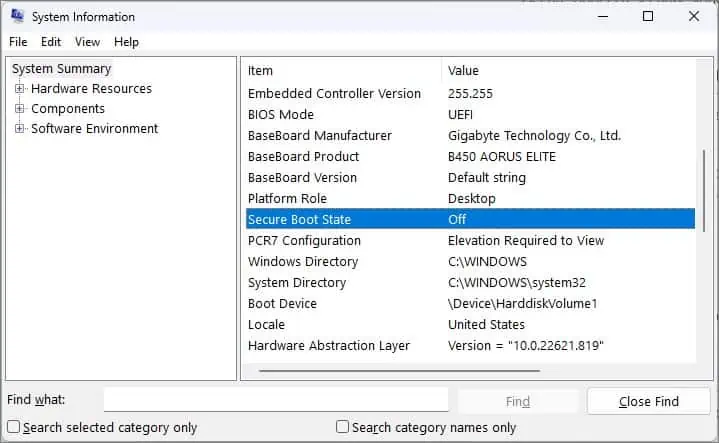
Check the Secure Boot Status
The secure boot might have been disabled to install some operating systems like Linux or older versions of Windows on some UEFI-enabled devices. On Windows, you may verify if thesecure boot is enabled/disabledfrom the System information.
Check for GPT partition
Secure boot is one of the features of theUnited Extensible Firmware Interface(UEFI) firmware. Unlike the traditional BIOS, UEFI does not boot from the disks withMaster Boot Record(MBR)partition. The UEFI is only compatible with the disks usingGUID Partition Table(GPT)partition style.
Therefore, you need to verify if the disk on your device is a GPT disk before we go on to enable the secure boot.
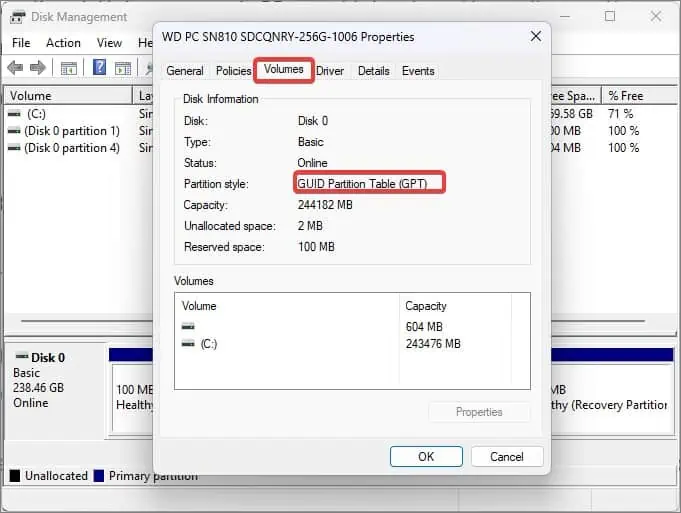
If the partition style isMaster Boot Record (MBR), here’s how to change it into GPT.
Note: Back up all the data that is in the MBR disk before you proceed with the conversion. All the contents of the disk including the partition or volumes in the disk will get deleted in the process.
Check for UEFI Support
The Secure boot is a security feature for the UEFI firmware which you won’t find on the older legacy BIOS firmware. Therefore, the next thing you should do is verify if theBIOS mode on your Windows device is set to UEFI.
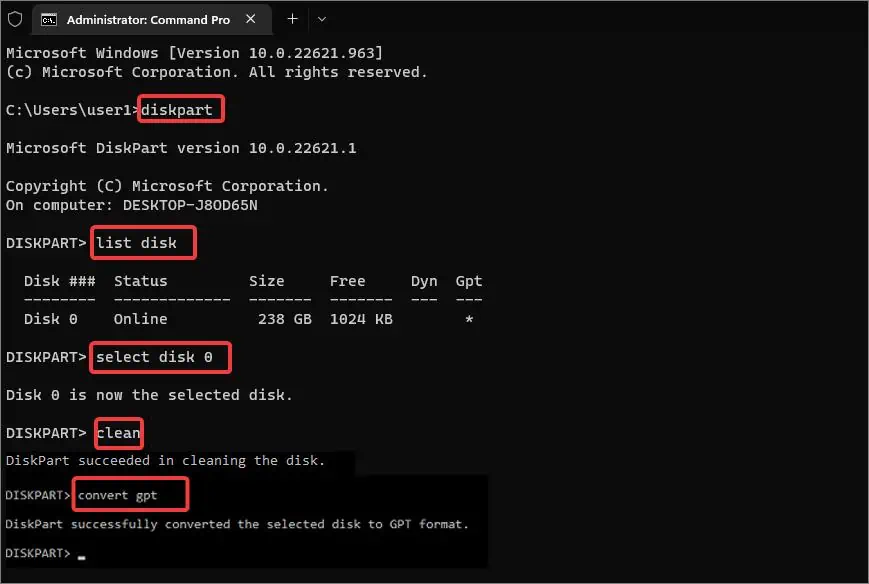
Enabling the Secure Boot
Once you have assured that the BIOS mode is set to UEFI, you may then boot into the BIOS and enable the Secure Boot.
On some Gigabyte devices, the section for the secure boot is hidden in the BIOS. To make the option available, you have to disable theCompatibility Support Mode (CSM).The CSM provides Legacy BIOS backward compatibility for the UEFI. Unless this mode is disabled, the UEFI won’t operate fully, and thus the secure boot cant is enabled.
